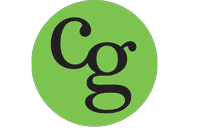In this day and age, it’s a lot tougher to judge what exactly constitutes journalism. This post by New York University journalism professor Jay Rosen sets out some really though-provoking criteria to use in trying to determining journalistic legitimacy.
It used to be that we conferred journalistic legitimacy based on professional orientation. If you reported for The New York Times, The Kansas City Star or some other news gathering business, you were a journalist. If you didn’t, you probably weren’t.
These days, the power of the press belongs to just about anybody with about a laptop and an interest in reporting about something. Blogs run by just a handful of people reach millions around the world and some of the best reporting I’ve seen recently is being done by nonprofit outfits like ProPublica.
It’s becoming increasingly clear that journalism isn’t a profession or title so much as it is an activity, something that can come from many different sources or outlets, if you’re paying attention. But if you can’t discern whether someone is a journalist based on their title, the publication they write for, or who they’re credentialed by, it’s a much bigger challenge to determine what reporting to take seriously.
The eight terms outlined by Rosen offer a good start to identifying exactly what to pay attention to. In his view, journalism occurs with: (1) veracity; (2) accuracy; (3) transparency; (4) intellectual honesty; (5) currency; (6) inquiry; (7) utility; and (8) polyphonicity (seeking out a plurality of voices). I’d highly recommend reading his blog post for the full definition of these terms (Note: This blog is from March but I learned about it recently from Rosen’s Twitter feed).
As someone who does the bulk of my independent writing work for nonprofit groups these days, these eight terms resonate strongly with me as objectives to aspire toward. I constantly find myself questioning: “Does what I’m doing right now qualify as journalism?”
Journalism would be better off if more aspiring reporters, columnists and bloggers, whether they’re paid for their work or not, questioned themselves and tried to meet criteria such as these.
